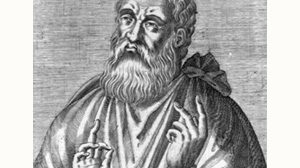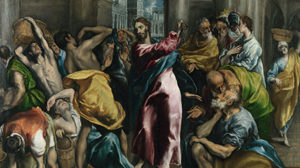Tobit 3:1-11a, 16-17a
Mark 12:18-27
Reflection:
Command my life breath to be taken from me . . . It is better for me to die than to live . . . I am overwhelmed with grief. Tobit 3:6
Sometimes we are so overwhelmed with life that we want to give up. It seems that it would just be easier to die. And sometimes, we may even entertain the idea of suicide.
I was a freshman in college when I considered killing myself. I had had an abortion, and I hated myself. I couldn’t find the forgiveness I needed even though I had gone to confession. I was driving down the freeway and thought that if I just drove into oncoming traffic, my pain would be over in an instant. I would finally be at peace. But then I thought of the pain I would cause another family or families who would also be involved in the accident, so I couldn’t do it.
I finally told our chaplain that I was entertaining suicidal thoughts. He helped me so much that day. He told me that any thoughts of suicide come straight from the pit of hell and that the next time one came, I was to reject it immediately and ask God to protect me. He said that my reasons for not wanting to live were all lies from Satan who is a liar and the father of lies. Father Frank saved my life that day.
Others are not so fortunate to have someone help them face their demons, and they do in fact kill themselves. Growing up, I believed a person would go to hell if they committed suicide, but today I believe you aren’t culpable for your sin if you are desperate enough to kill yourself.
The catechism states this: “We should not despair of the eternal salvation of persons who have taken their own lives. By ways known to Him alone, God can provide the opportunity for salutary repentance. The Church prays for persons who have taken their own lives.” (Catechism 2283)
Father, today we lift up anyone who is considering suicide, and for families who are suffering the pain of losing someone to suicide. Please send them the help they need, and the assurance of your love and consolation. We pray in Jesus’s Name. Amen.
Janice Carleton and her husband Jim live in Portland, OR and partner with Passionist Fr. Cedric Pisegna in Fr. Cedric Ministries. She is the mother of 4 grown children and grandmother of 6. Janice also leads women’s retreats and recently wrote her first book: God Speaks to Ordinary People – Like You and Me. Visit Janice’s website at http://www.janicecarleton.com/ or email her at [email protected].








